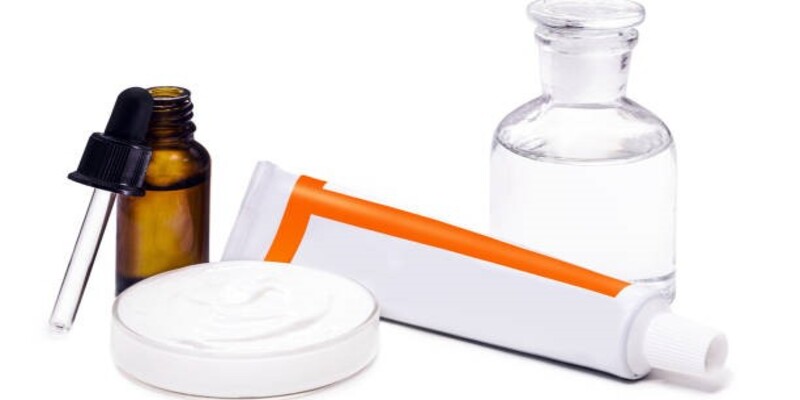Have you ever experienced hearing a sound only audible to yourself without ear drops for tinnitus? This experience is not unique to you. Beyond fifty million people are afflicted with this condition, known as tinnitus. Auditory perception of sounds devoid of any external origin defines this condition. A buzzing, whistling, high-pitched ringing, or something else entirely differs in the noises those impacted produce. Critics have characterized its auditory characteristics as hissing, wailing, chirping, or humming.
Audio hallucinations can come from inside or outside your body, be loud or quiet, frequent or infrequent, subtle or severe. Sound therapy or tinnitus retraining therapy helps tinnitus patients tune out inner noises. Tinnitus affects many people daily. According to studies, 15% -20 % of the population has tinnitus. Anyone can get sick, but older people are more likely. The etiology of tinnitus is unknown. However, stress, age-related hearing loss, loud noise exposure, and more have been linked.
Symptoms Of Tinnitus
Titus is typically a subjective condition. Due to this, the sound is audible only to the affected individual and cannot be quantified. The likelihood of others perceiving the disturbance is less than 1%. The sound is frequently characterized as:
- Vibrating
- Ringing
- Hissing
- Buzzing
- Roaring
- Whistling
- Humming
Likewise, the sound may:
- Impact both or one ear
- Be continuous or intermittent.
- High or low-tuned
- The volume of the sound can fluctuate. It is frequently most conspicuous during periods of silence or at night. The presence of hearing loss is possible.
- Pulsatile tinnitus is audible to some individuals and resembles a heartbeat. This may occur if a cardiovascular condition is present.
Causes Of Tinnitus

Many factors can contribute to tinnitus, which is characterized by a buzzing or echoing voice and is constantly associated with extended exposure to loud sounds. Nonetheless, the issue lies beyond mere commotion. Infections, tumors, or abnormalities in the middle ear, including earwax accumulation, can cause tinnitus. Moreover, it is a manifestation of Meniere's disease, a pathological state that impacts the equilibrium mechanism of the inner ear. Furthermore, age is a factor. Tinnitus affects a multitude of individuals aged 55 and above; thus, they find hearing aids for tinnitus a great way to stay away from it.
This occurs due to the breakdown of the auditory nerve, which supplies information from the ear to the brain. Hearing normal sounds is impaired by this deterioration. The brain's sound-processing regions generate nerve cells to compensate for this loss. A heightened sensitivity ensues. Imagine these neurons beginning to respond to their neighboring neurons' activity as the volume increases to an unbearable level.
A visit to an otolaryngologist or audiologist (specialist in the ear, nose, and larynx) is recommended if the sound becomes more persistent. It is interesting to include some statistics when discussing tinnitus. Tinnitus affects around fifty million individuals, or 15% of the American population, as reported by the American Tinnitus Association. Twenty million individuals are affected by chronic tinnitus, whereas two million suffer from severe and incapacitating forms.
Approaches To Cure Tinnitus
One can cure tinnitus using the following methods, which may include sound therapy or tinnitus retraining therapy and much more.
- Sound Masking Techniques: White noise, gentle background music, and nature melodies can replace tinnitus medication. We use "sound masking" to ignore the constant buzzing in our ears. Televisions, radios, and electric fans produce surprising background noise. Tinnitus often causes hearing loss. When hearing loss and tinnitus occur frequently, ear drops for tinnitus may increase external sound volume, reducing its visibility.
- Training Your Brain: Retraining the brain to ignore the disturbance is like tinnitus retraining. The gradual vision loss from eyeglasses is an analogy. Long-term exposure to a sound similar to tinnitus trains the brain to ignore both. Depending on the patient, this specialized treatment usually takes 12–24 months. According to your doctor, you may need to address other causes of tinnitus.
- Musculoskeletal Contributions: Tinnitus can occasionally be exacerbated by physical factors such as severe neck muscle tension, clenching of the mandible or teeth, or previous injuries. Massage tinnitus retraining therapy may offer significant potential in alleviating the symptoms associated with muscle tension.
- Addressing Health Conditions: Tinnitus severity could potentially be mitigated through the treatment of underlying health conditions such as anxiety, melancholy, and insomnia. A discernible amelioration of tinnitus symptoms may result from caring for these conditions.
- Changing Thought Patterns: Adverse thoughts and emotions associated with tinnitus may be redirected through cognitive behavioral therapy and hypnosis techniques. Modifying one's perception and response to tinnitus can substantially alleviate symptoms with this method.
- Medication Review: Particularly when administered in higher doses, tinnitus may occasionally manifest as an adverse effect of specific medications. Such medications consist of aspirin, certain antidepressants, and additional nonsteroidal anti-inflammatory medicines. Tinnitus rarely disappears when these medications are reduced or discontinued.
Methods For Preventing Tinnitus

There are effective measures that can be implemented to mitigate the risk of developing tinnitus, although complete prevention may not always be possible. In noisy environments, it is critical to protect your hearing. One can substantially mitigate their exposure to detrimental noise levels by employing earplugs or ear mufflers. Turning down personal audio hearing aids for tinnitus is an easy way to reduce noise. This practice helps maintain otitis externa and hearing. Earplugs that block noise can improve musicians' and concertgoers' listening experiences.
Medication side effects must be considered. Numerous medicines can impair hearing. If you're worried about these side effects, consult your doctor before starting a new medication. Staying up to date on tinnitus and hearing health research is also helpful. According to extensive research, decibel levels above 85 can cause hearing loss. This information can aid hearing health decisions when recognized and considered.
When To Consult A Doctor For Tinnitus
Tinnitus should be treated immediately, especially if it develops suddenly. Thought-provoking symptoms may accompany intermittent tinnitus. A doctor can safely remove earwax and other foreign objects. The daily impact of tinnitus is also important. See a doctor if the condition disrupts sleep, social interactions, or other daily activities. Tinnitus can indicate anxiety or depression. Professional advice can be invaluable in these situations.
Also, consider the tinnitus sound's characteristics. A pulse-like feeling suggests seeing a doctor immediately. Hearing other people's tinnitus sounds may indicate a serious medical issue. Notably, following a head injury, it is critical to seek immediate medical attention when tinnitus is accompanied by additional symptoms such as facial muscle weakness, vertigo, or sudden hearing loss for not using ear drops for tinnitus.







